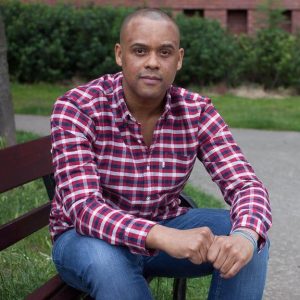 Last Friday I heard about the Black Lives Matter movement protests around the UK, in particular that the M4 motorway into Heathrow Airport had been blocked by those protesting against police brutality and violence towards people of colour.
Last Friday I heard about the Black Lives Matter movement protests around the UK, in particular that the M4 motorway into Heathrow Airport had been blocked by those protesting against police brutality and violence towards people of colour.
It was then that I saw comment after comment from white people saying that racism in Britain wasn’t a problem, and that our police are not like their American counterparts. I was so angry, that I wrote a note highlighting some truths about race and policing in the UK and posted it to Twitter. It was shared hundreds of times, because it resonated with many.
As a black man and former police officer, racism is as much a problem in the UK as it is in the US. We British just don’t like talking about it because it makes us uncomfortable, I get that, but this mindset isn’t going to get us anywhere. British police might not be routinely armed, but black people are still disproportionately mistreated. These are not just facts and figures that I and others have just come up with in our heads, these statistics come from the police themselves; the Home Office, the Independent Police Complaints Commission, the Institute of Race Relations, the Mental Health Foundation and others.
I’ve not read anything from anyone yet that disputes these findings, just a lot of hot air that racism isn’t an issue in Britain and that black people are just moaning for moaning sake.
In the UK, Black People are:
⁃ ‘twice’ as likely to die in police custody than white people
⁃ ’37 times’ more likely to be stopped and searched by the police than white people
⁃ ‘three times’ more likely to be arrested than white people
⁃ ’44 times’ more likely to be detained under the mental health act than white people
⁃ ‘three times’ more likely to be unemployed than white people, and
⁃ People of Colour are targeted at airports.
Following my post, I was invited onto BBC Radio 5 live to talk about racism and policing. The interview went okay, but what struck me and what the presenter acknowledged himself, was that he just didn’t see it, the racism. I didn’t expect him to or even get it, like so many don’t. He was a good guy and wasn’t trying to bait me, but his problem is part of a wider one. Black people say they’ve experienced racism, and white people deny it and try to silence their voice. Why is this?
For years I fought the Metropolitan Police in court with racism trying to bring about real change, and for all of those years they fought me back twice as hard saying racism didn’t exist within Scotland Yard. Even when I proved that it did, they still fought me to say that it didn’t. To this day, the force has never acknowledged or apologised for the acts of racism I did experience. But it’s okay, I’m used to it.
I’m used to experiencing racism, subtle and overt, not just in the police, but in wider society. I’ve lost count of the number of times I’ve been watched as I enter a supermarket to see if I’m going to steal, or when I walk along the street, a white woman walking towards me will hold her bag tighter as she passes.
I’ve lost count the number of times my friends have used casual racist remarks about black people, or tell me I’m not really black, but brown. I’ve lost count the number of times I’ve been called ‘sensitive’ for daring to have an opinion on race, as a black man. These are real experiences which dehumanize me, and people like me. How would you feel if you were a young black man walking Britain’s streets and were constantly stopped by the police for no reason, I asked the BBC radio presenter, as his voice fell silent.
Yesterday I wrote an article for The Independent newspaper stating even though black people have a genuine grievance with the police in the UK, officers are not fair game when it comes to violence against them. There are better ways to fight racism and discrimination, although the justice system is not one. It fails so many people of colour, which the Prime Minister Theresa May now acknowledges. My article resulted in people un-friending me on Facebook. I’m not bothered about this as I don’t suffer fools anymore. The point is, my speaking out about racism makes white people uncomfortable. Yet, they fail to understand how actually experiencing it makes me and other black people feel.
And before you label me a racist, if you know anything about me, you will know that the person I love most in the world is my mother, a white woman. But this doesn’t, shouldn’t, and will not stop me from calling out racism. It took me a long time to understand racism and how it affects black people, but I am now woke.